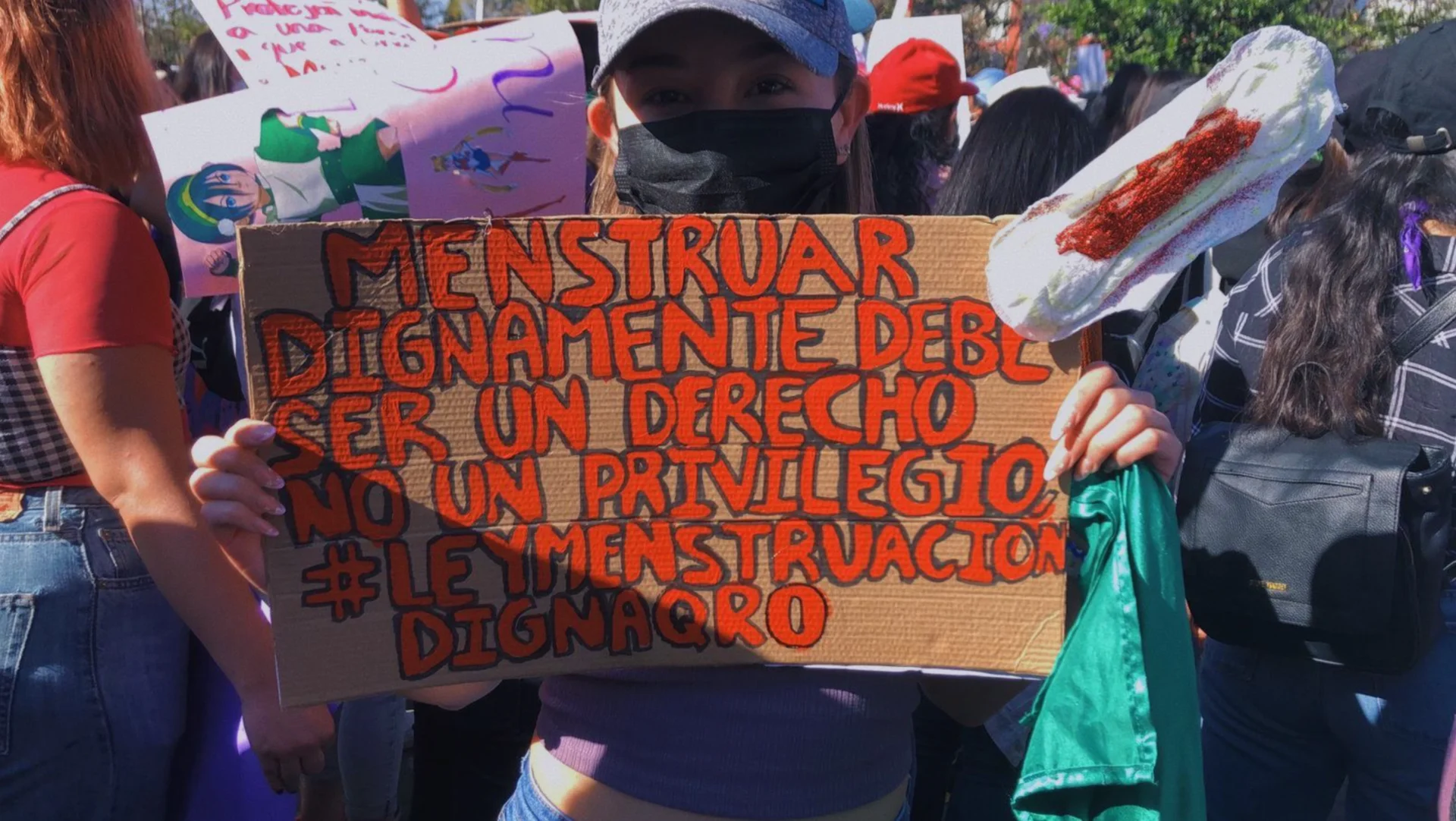Menstruation — or period — remains a taboo subject in many communities, which generates shame and discrimination against women. At the time of menarche, or first menstrual period, most women claim not to have had the necessary information to go through this change. This stigma negatively affects their self-esteem and emotional well-being, perpetuating gender inequality and limiting their full participation in society. Globally, studies indicate that stigma related to menstruation is widespread, and especially adolescent girls often feel ashamed or unable to talk openly about it.
In addition, numerous myths about menstruation persist, such as the idea that women should not engage in certain activities during their period. These myths not only limit women’s opportunities, but also reinforce barriers to their development and well-being.
This issue is closely linked to health and poverty, especially in low-income communities, where many women face difficulties in safely and equitably accessing health entitlements, as mentioned in Oxfam’s Econonuestra report, and specifically menstrual hygiene materials. The multiple exclusions faced by these historically vulnerable population groups are not limited to income generation, but also to the denial of health rights.
This reality has given rise to the concept of menstrual poverty, which reflects the lack of access to basic menstrual hygiene materials, education and adequate sanitation, which severely impacts the quality of life of economically vulnerable women. Ensuring access to adequate menstrual health for all menstruating individuals is a social responsibility. That is why the impact on some of the necessary conditions (education, infrastructure, health, freedom, inclusion, and hygiene) undermines it.
In Argentina, the economic crisis has exacerbated the challenges in menstrual hygiene management. The lack of access to basic menstrual hygiene materials, due to their high cost, forces many women to prioritize their purchase over other basic needs, such as food, while threatening menstrual health and deepening social inequalities in the country.
A nationwide study, carried out by the Argentine consulting firm Voices! together with Supermercados Día, revealed that 81% of menstruating women consider menstrual hygiene materials to be expensive or very expensive and that seven out of ten are worried about not being able to afford them. Five out of 10 Argentine women report that they have had to limit their purchase of these products due to economic constraints and eight out of 10 menstruating women have changed their menstrual hygiene management habits in the past 12 months. The most common change has been to opt for cheaper brands, followed by the choice of alternative products to reduce costs and the inappropriate use of some products, such as prolonged use.
The study also indicated that there is a lot of interest in testing more environmentally friendly products such as menstrual cups and period underwear. This represents a huge opportunity to address the dual demand for greater social gender equity and private equity policies that address environmental sustainability. It is especially interesting in vulnerable sectors that do not have adequate systems for the disposal of used menstrual materials.
The problem transcends borders in our region. For example, in Brazil, a quarter of girls have missed school because they do not have such a basic item as menstrual pads, which motivates a replacement of menstrual hygiene materials as improvised as it is unhygienic and ineffective, such as bread crumbs or old newspapers, a common practice in sectors of society living in poverty.
To alleviate this economic burden, several organizations in Latin America have implemented support initiatives. In Argentina, for example, the #El28EsParaVos campaign of Día supermarkets offers a 50% discount on menstrual hygiene products on the 28th of each month. In addition, there are public policy proposals to ensure the accessibility of menstrual products. EcoFeminita leads a campaign called #MenstruAcción with the objective of making visible that menstruation is a factor of inequality. There are also some legislative initiatives that seek to include menstrual hygiene materials in the basic basket and exempt them from taxes, and some community programs and local NGOs that distribute free menstrual hygiene products in areas of high vulnerability.
In other countries in the region, such as Mexico and Uruguay, effective measures have been implemented to improve access to menstrual hygiene products. For example, in Mexico, the Menstruación Digna (Decent Period) movement succeeded in 2021 in eliminating the 16% VAT on menstrual hygiene products, following the example of Colombia, which, in 2018, eliminated the tax on pads, while Uruguay launched the Menstrual management + Equality + Inclusion Program to distribute free kits in Montevideo from 2023. In Brazil, the government has announced the free distribution of menstrual pads in pharmacies across the country for low-income women, benefiting millions of women.
All of this underscores how poverty disproportionately affects women, with period being an additional factor of inequality. The costs associated with menstrual hygiene management, a biological necessity, represent significant challenges for women, and there is a strong demand for equitable access to healthy menstrual management. In qualitative studies on the subject, women point out that “menstruation is something that will always be there, it is not optional”, and reinforce the expectation that “there should be something more accessible” and that “the products should be affordable, or distributed for free in all health centers per month, since it is something proper to the human body and should be taken care of without any kind of impediment”. Emphasizing the structural and not volitional or discretionary character of menstrual conditioning, women question: “It is not a disease or something that we decide to be born with, and people in more vulnerable situations cannot access these privileges.”
It is essential that menstruation cannot be an obstacle for any woman, and it is the responsibility of society as a whole to ensure a level playing field for all. The approach must be comprehensive, combining legislative policies, education, awareness raising, and collaboration to effectively address menstrual poverty.
*Translated by Janaína Ruviaro da Silva from the original in Spanish.













